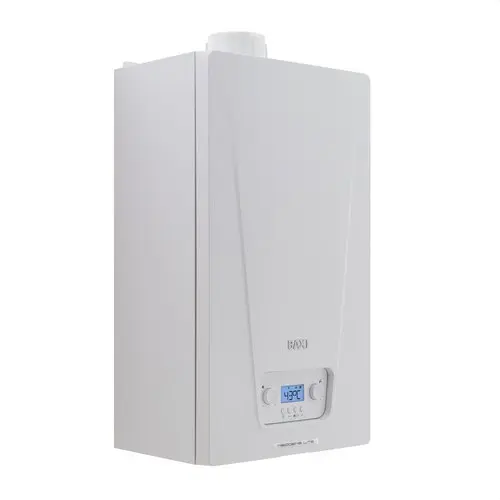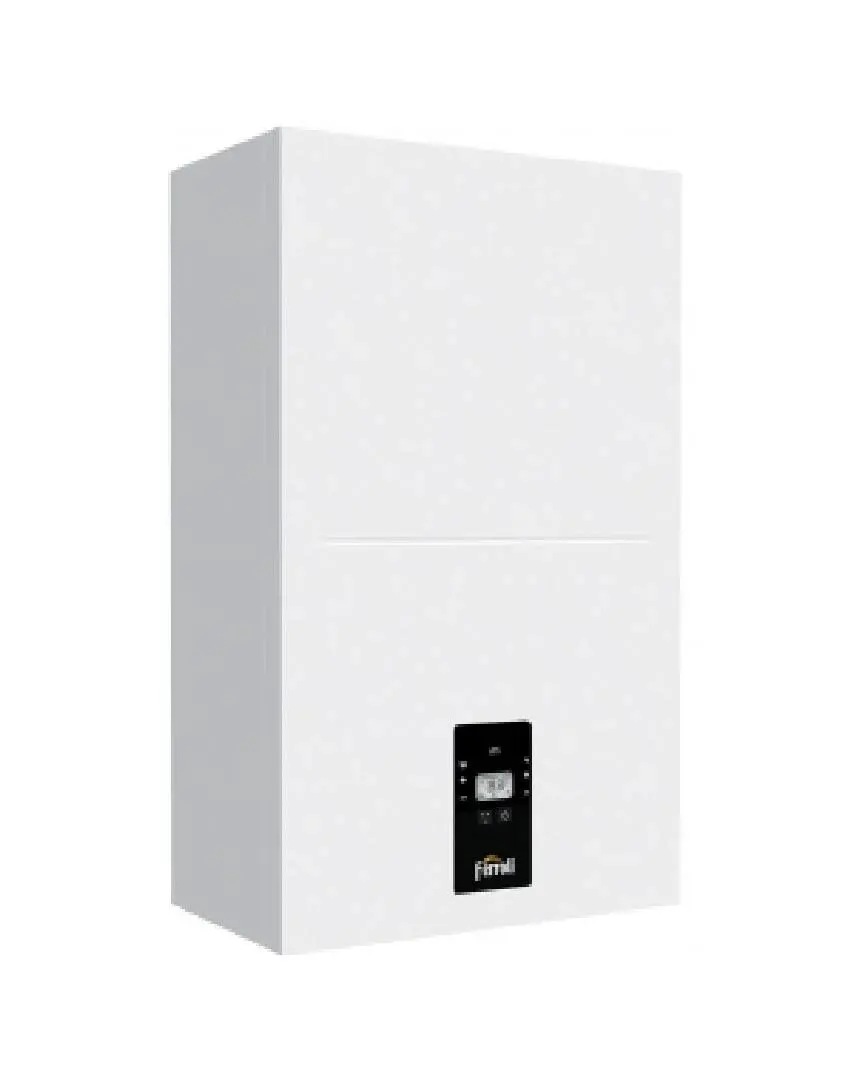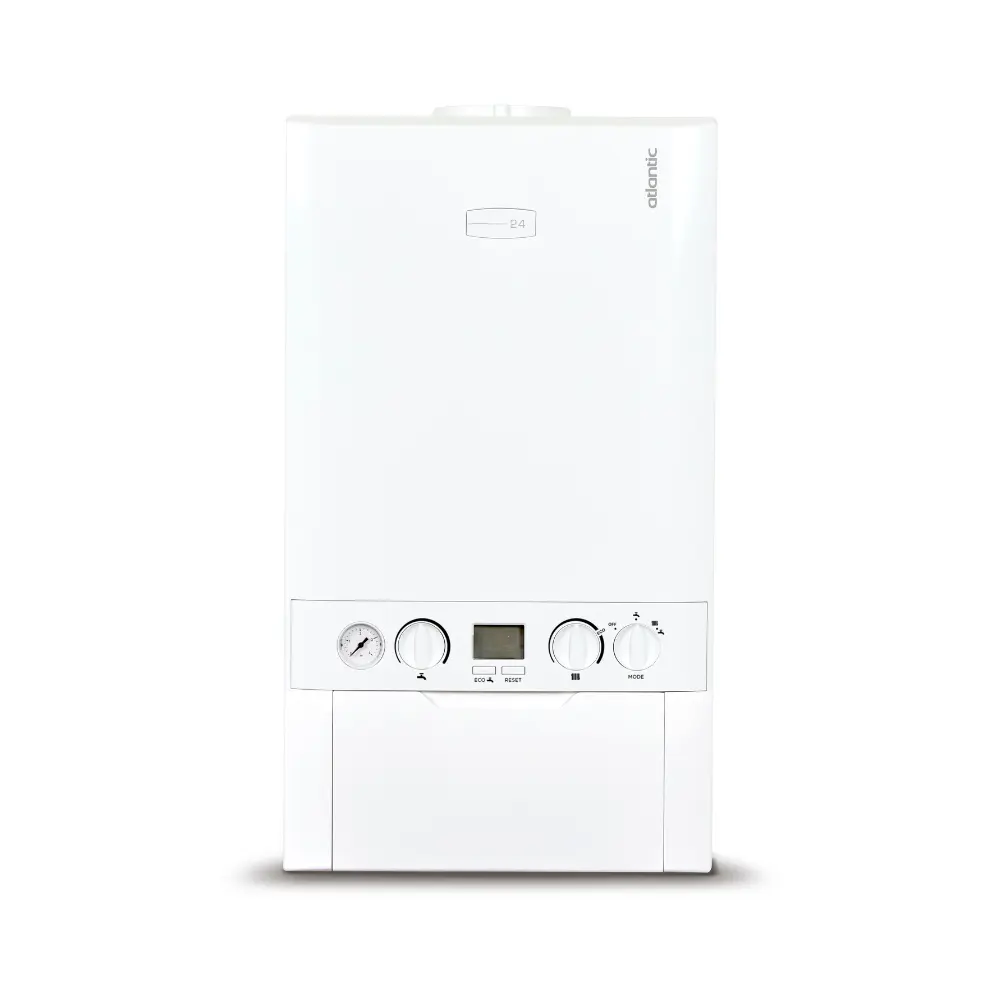Comparisons and rankings
What types of gas boilers are there? We help you decide with this guide

9 minutes of reading
By GroupSumi
September 26, 2024
Gas boilers are one of the most commonly used heating systems in homes and businesses due to their efficiency and versatility. However, not all gas boilers are the same. There are different types of gas boilers based on their characteristics and technology. Choosing the right one will depend on the specific needs of each project or installation.
Thegas boilerstypes of gas boilers, each designed to meet specific needs and requirements.types of gas boilersbased on their characteristics and technology. Choosing the right one will depend on the specific needs of each project or installation.
Below, we show you the types of gas boilers, their advantages, and in which cases their choice is optimal.
What types of gas boilers are there?
1. Conventional gas boilers
Theconventional natural gas boilersare the most basic and traditional type. They work by heating water through the combustion of gas, which is then distributed through radiators or underfloor heating systems. The combustion gases are expelled outside without utilizing the additional heat they contain, which makes their efficiency lower compared to other more modern boilers.
Advantages:
- Low initial costThey are generally cheaper than other types of gas boilers.
- Easy installationThe installation of these boilers is straightforward, and they fit into existing traditional systems.
It is ideal for projects or installations where:
- An economical and simple solution is sought to heat small homes.
- There is already an old heating system that wants to be renewed without making major modifications.
Our recommendations for natural gas boilers

Natural gas boiler NEODENS LITE 24/24F BAXI
The new Neodens Lite range has a robust and ultra-compact design that will allow you to install it practically anywhere. Low consumption boiler with energy certification A+.
- It works with natural gas and butane/propane.
- Heating power: 24 kW
- ACS power: 24 kW
2. Mixed gas boilers
Themixed boilersare the most common in homes, as they combineheating and domestic hot water (DHW)in a single device. They work by heating the water for theradiatorsor theunderfloor heating and they also provide instant domestic hot water, without the need for a storage tank. This makes them very practical for homes with moderate hot water needs.
Advantages:
- Compact and practicalThey do not require a hot water tank, which saves space.
- Immediate supply of hot waterThe water is heated instantly when needed, which eliminates waiting times.
- Space saving: Ideal for homes with limited space.
It is ideal for projects or installations where:
- A compact solution is needed for small spaces or where there is no room for a hot water tank.
- The home does not have a very high demand for hot water, allowing for efficient use of the boiler.
- A system that provides heating and hot water in a single unit is required.
Our recommendations for mixed gas boilers

Ferroli Bluehelix Alpha 28 C FERROLI mixed gas boiler
The Ferroli Bluehelix Alpha 28 C mixed condensing boiler, with 24 kW for heating and 28 kW for domestic hot water, offers high efficiency (109.7%), a stainless steel heat exchanger, a compact design (25 cm deep), and WiFi control.
- Power 24 kW (heating) and 28 kW (DHW)
- High energy efficiency (109.7%)
- Integrated WiFi control
3. Condensing gas boilers
Thecondensing boilersare the most efficient on the current market. Their main advantage lies in their ability to utilize the heat from combustion gases, which is wasted in conventional boilers. Instead of expelling hot water vapor, they condense it anduse that heat to improve efficiency, whichreduces gas consumption and pollutant emissions.
Advantages:
- High energy efficiencyThey can achieve an efficiency of over 90%, which translates to lower gas consumption.
- Lower emissionsBy utilizing residual heat, these boilers are more environmentally friendly.
- Long-term savings: Although its initial cost is higher, thesavings on the gas billmore than compensates for this investment.
It is ideal for projects or installations where:
- The aim is to reduce energy consumption and pollutant emissions.
- The project includes low-temperature heating systems, such as underfloor heating, which maximizes the efficiency of these boilers.
- There is a desire to comply with stricter energy efficiency regulations.
Our recommendations for condensing gas boilers

Thermor LOGIC MICRO 24 THERMOR gas boiler
The Thermor LOGIC MICRO 24 gas boiler offers energy efficiency class A in heating and domestic hot water. With a power of 24.2 kW and a flow rate of 13.87 L/min, it is ideal for homes seeking comfort and energy savings.
- Power of 24.2 kW.
- Energy class A.
- Hot water flow rate of 13.87 L/min.
4. Sealed gas boilers
Thesealed gas boilersare those that are completely sealed and take the necessary air for combustion from outside the home, through a duct, preventing the air in the room where the boiler is located from being compromised. This makes them safer than atmospheric boilers, which take air from inside the home.
Advantages:
- Greater safety: Since they are sealed, there is no risk of combustion gases entering the home.
- Reliable efficiencyThey maintain good performance, suitable for most homes.
- Compatible with various installationsThey can be adapted to traditional and modern heating systems.
It is ideal for projects or installations where:
- A safe boiler is needed for enclosed or poorly ventilated spaces.
- An efficient heating system is required in small or medium-sized homes.
- A safe and efficient option is sought without significant technical requirements.
5. Low NOx gas boilers
Thelow NOx gas boilersare designed to reduce the emission of nitrogen oxides (NOx), which are polluting gases that contribute to global warming and air pollution. They comply with stricter regulations regarding the reduction of pollutant emissions.
Advantages:
- Environmentally friendlyThey significantly reduce the emissions of polluting gases.
- Regulatory complianceIdeal for areas where NOx emission regulations are strict.
- Good efficiencyIn addition to emitting fewer gases, they maintain efficient performance for the home.
It is ideal for projects or installations where:
- The aim is to comply with local regulations that limit the emission of polluting gases.
- The project is located in urban areas with stricter environmental regulations.
- A more sustainable and eco-friendly heating option is desired.
6. Storage gas boilers
Thestorage boilersare those that, in addition to heating water for heating, have a tank or accumulator wherestore large amounts of domestic hot water. This allows for hot water to be available immediately at all times, making them perfect for homes with high hot water demand.
Advantages:
- Greater amount of hot waterThey can supply hot water to several taps or showers at the same time without any issues.
- Ideal for large familiesThey allow for enough hot water for homes with multiple people or simultaneous uses.
- Efficiency in supplyThey provide instant hot water in large quantities.
It is ideal for projects or installations where:
- A large amount of hot water is needed, such as in homes with several people or multiple bathrooms.
- The project requires hot water for several points of use simultaneously.
- Comfort and the immediate availability of hot water in large quantities are prioritized.
How to choose the right gas boiler?
Choosing the type ofsuitable gas boileris essential to ensure efficient operation of your home's heating and hot water system or project. The right choice not only guarantees comfort and energy efficiency but can also translate into asignificant savings on your gas bill and a reduction in environmental impact.
Next, we show you the key factors you should consider to make the best decision.
Home size and number of people
The size of the home and the number of people living in it are crucial aspects for selecting a boiler. Choosing a boiler for a small apartment is not the same as choosing one for a large house with several people using hot water simultaneously.
- For small homes or apartmentsIf you live in a small space, amixed boileris usually the best option. These boilers do not require a storage tank and provide hot water instantly, making them perfect for homes with one or two people.
- For large homes or with several peopleIf you have a house with several rooms, multiple bathrooms, or a large family, you are likely to need astorage boiler. This type of boiler can store large amounts of hot water, ensuring a constant supply when several people use water simultaneously.
Demand for domestic hot water (DHW)
A key factor when choosing a boiler is the amount ofdomestic hot water (DHW)that you need. Some boilers are designed to provide hot water instantly, while others store water in a tank.
- Low hot water demandIf you usually don't have many people using hot water at the same time (for example, a shower and a faucet open simultaneously), acombi boileris ideal. It provides hot water on demand, without the need for a storage tank.
- High demand for hot water: If you have several bathrooms or need hot water in multiple areas of the house simultaneously (such as in a large house with several family members), then astorage boileris the most suitable option. These boilers allow multiple people to use hot water at the same time without any drops in temperature or supply.
Type of heating system
The type of heating you have or plan to install also influences the choice of gas boiler. Traditional heating systems, such as radiators, or more modern ones, like underfloor heating, require different types of boilers to optimize their operation.
- Conventional radiatorsconventional radiators usually work well with most gas boilers, but if you are looking for energy efficiency, acondensing boileris ideal. This type of boiler recovers the residual heat from the combustion gases, which improves energy efficiency.
- Low temperature systems (underfloor heating): Low temperature systems (underfloor heating)underfloor heatingwork better withcondensing boilers, since these boilers are more efficient in generating heat at low temperatures. This type of heating distributes heat evenly throughout the home, maximizing the boiler's performance.
Energy efficiency
Energy efficiency is a determining factor, as it directly impacts gas consumption and the long-term cost of heating.
- Condensing boilersThey are the most efficient on the market, with an efficiency that can exceed 90%. These boilers utilize the heat from combustion gases to heat the water, which reduces energy waste and, consequently, gas bills.
- Low NOx boilersThese boilers are ideal if your priority is to reduce environmental impact. They emit less nitrogen oxides (NOx), which are polluting gases, without compromising efficiency.
Local regulations and standards
In many areas, there are strict regulations regarding the energy efficiency and pollutant emissions of boilers. Before choosing a gas boiler, it is essentialcheck local regulations.
In some cases, regulations require the use ofcondensing boilersor oflow NOxdue to their lower emissions and higher efficiency.
- Regulatory compliancegas boiler with low NOx emissions is often a requirement.low NOx boileror acondensing boilerit may be mandatory to comply with regulations on emissions and energy efficiency.
Available space for installation
The available space for installing the boiler is a practical factor that should not be ignored. Some types of gas boilers are more compact, while others require more space due to the need for a water storage tank.
- Reduced spacesIf you have limited space, such as in apartments or small homes, themixed boilersare an excellent option. These boilers are compact and do not require a hot water tank, making them easy to install in small areas such as kitchens or closets.
- Homes with more spaceIf you have a larger area for installation, such as a garage or a technical room, you might consider astorage water heater, which takes up more space due to its tank, but provides a continuous supply of hot water to multiple points of use.
Budget
The initial budget is also an important factor, although it should not be the only one. Some gas boilers, such as condensing ones, may have a higher initial cost, but their high efficiency allows for considerable savings on gas consumption in the long run. Therefore, you should consider the total cost of ownership, which includes both the purchase and installation as well as savings on energy bills.
- Low initial budgetIf you have a limited budget, theconventional boilersorsealedthey can be initially more economical options. However, their efficiency is lower, which could increase expenses in the long term.
- Long-term investmentIf you are willing to make a larger investment to save in the future, thecondensing boilersare the best option, as their high efficiency will significantly reduce gas consumption and energy bills.
Conclusion
Choosing the type of suitable gas boilerrequires careful evaluation of the project's needs. Factors such as the size of the home, the demand for hot water, the type of heating system, energy efficiency, local regulations, and available space are crucial in this choice.
Choosing acondensing boiler to maximize efficiency, or amixed boiler if you are looking for a compact and practical solution, it will depend on the priorities. By evaluating the different types of gas boilers that exist, you will be able to choose a boiler that not only meets the heating needs of your space but also optimizes energy consumption and allows for long-term savings.
InGroupSumi,we have extensive experience in theheating system advice. We help you select the gas boiler that best fits your project, ensuringefficiency, comfort, and sustainability. Our team of professionals is ready to offer you personalized solutions, ensuring a quick and effective installation that meets the highest quality standards.
Returns within 30 days
Shop with peace of mind. If something goes wrong, we'll take care of it.
After-sales service
Any questions? Our support team will be happy to help you.
Pay how and when you want
Card, bank transfer, PayPal... Installment? We have them all.
GroupSumi is your online distributor for construction, electrical material and climate control.
All rights reserved © 2026 GroupSumi